Abarth 500 595 695 vs Porsche Taycan Wagon – Which car suits you better?
Everyday use, family trips or long-distance drives – here’s where the differences show.
Discover whether Abarth 500 595 695 or Porsche Taycan Wagon fits your lifestyle better.
Costs and Efficiency:
Price and efficiency are key factors when choosing a car – and this is often where the real differences emerge.
Abarth 500 595 695 has a convincingly advantage in terms of price – it starts at 32600 £, while the Porsche Taycan Wagon costs 88700 £. That’s a price difference of around 56152 £.
In terms of energy consumption, the advantage goes to the Abarth 500 595 695: with 17.10 kWh per 100 km, it’s hardly perceptible more efficient than the Porsche Taycan Wagon with 17.50 kWh. That’s a difference of about 0.40 kWh.
As for range, the Porsche Taycan Wagon performs significantly better – achieving up to 652 km, about 387 km more than the Abarth 500 595 695.
Engine and Performance:
Under the bonnet, it becomes clear which model is tuned for sportiness and which one takes the lead when you hit the accelerator.
When it comes to engine power, the Porsche Taycan Wagon has a decisively edge – offering 952 HP compared to 155 HP. That’s roughly 797 HP more horsepower.
In acceleration from 0 to 100 km/h, the Porsche Taycan Wagon is convincingly quicker – completing the sprint in 2.40 s, while the Abarth 500 595 695 takes 7 s. That’s about 4.60 s faster.
In terms of top speed, the Porsche Taycan Wagon performs significantly better – reaching 260 km/h, while the Abarth 500 595 695 tops out at 155 km/h. The difference is around 105 km/h.
There’s also a difference in torque: Porsche Taycan Wagon pulls convincingly stronger with 1110 Nm compared to 235 Nm. That’s about 875 Nm difference.
Space and Everyday Use:
Cabin size, boot volume and payload all play a role in everyday practicality. Here, comfort and flexibility make the difference.
Both vehicles offer seating for 4 people.
In curb weight, Abarth 500 595 695 is significantly lighter – 1410 kg compared to 2190 kg. The difference is around 780 kg.
In terms of boot space, the Porsche Taycan Wagon offers significantly more room – 446 L compared to 185 L. That’s a difference of about 261 L.
In maximum load capacity, the Porsche Taycan Wagon performs clearly better – up to 1212 L, which is about 662 L more than the Abarth 500 595 695.
When it comes to payload, Porsche Taycan Wagon evident takes the win – 605 kg compared to 385 kg. That’s a difference of about 220 kg.
Who comes out on top?
Overall, the Porsche Taycan Wagon shows itself to be outperforms in nearly all aspects and secures the title of DriveDuel Champion.
It convinces with the more balanced overall package and proves to be the more versatile choice for everyday use.
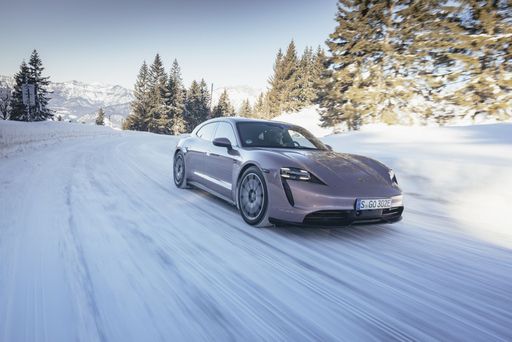 @ Dr. Ing. h.c. F. Porsche AG
@ Dr. Ing. h.c. F. Porsche AG
Porsche Taycan Wagon
Abarth 500 595 695
The Abarth 500, particularly in its 595 and 695 renditions, captures the spirit of Italian motoring with its compact yet aggressive design. Known for its lively performance and distinctive styling, this little powerhouse is a joy to drive, offering an engaging experience that appeals to enthusiasts. With its rich motorsport heritage, the Abarth 500 embodies the essence of fun and excitement on both the streets and the race track.
details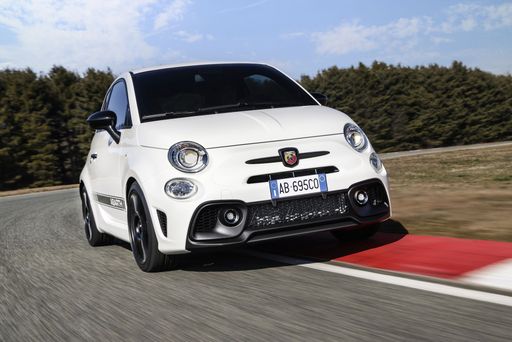 @ Abarth / Stellantis Media
@ Abarth / Stellantis Media
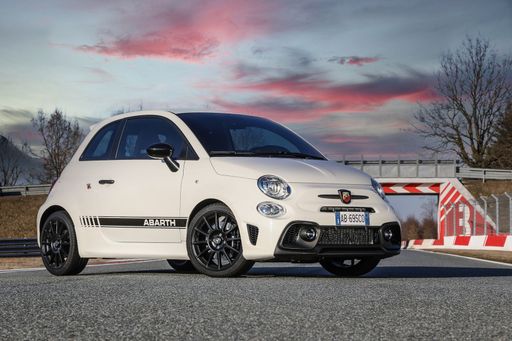 @ Abarth / Stellantis Media
@ Abarth / Stellantis Media
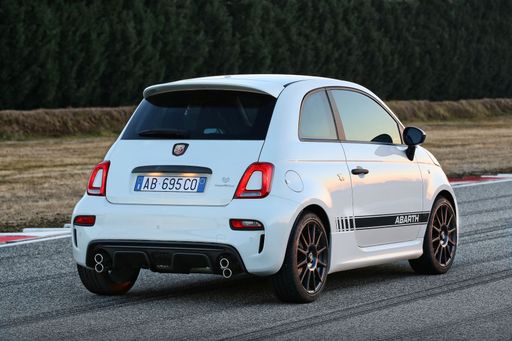 @ Abarth / Stellantis Media
@ Abarth / Stellantis Media
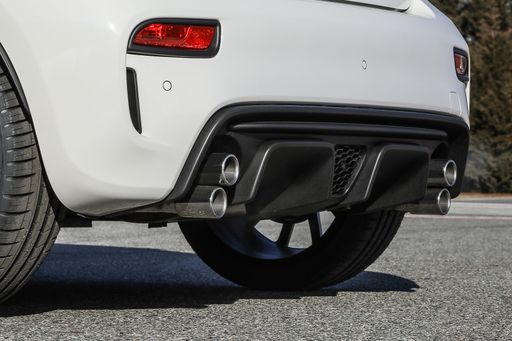 @ Abarth / Stellantis Media
@ Abarth / Stellantis Media
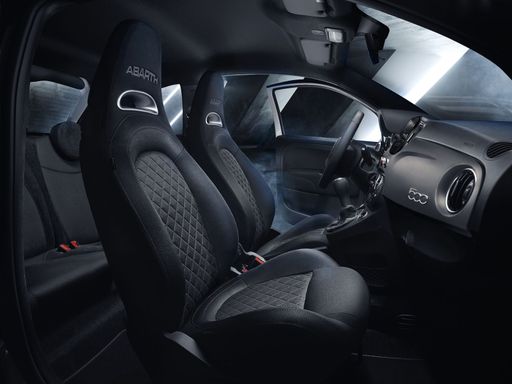 @ Abarth / Stellantis Media
@ Abarth / Stellantis Media
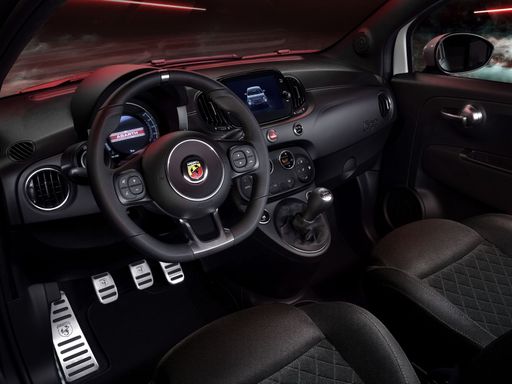 @ Abarth / Stellantis Media
@ Abarth / Stellantis Media
Porsche Taycan Wagon
The Taycan Wagon seamlessly blends the elegance of a luxury estate with the exhilarating performance Porsche is renowned for. Its sleek design not only boasts practicality but also exudes a sporty flair, making it a standout in both city streets and open highways. With a commitment to sustainability, this electrifying model illustrates that eco-friendly driving can be both thrilling and stylish.
details @ Dr. Ing. h.c. F. Porsche AG
@ Dr. Ing. h.c. F. Porsche AG
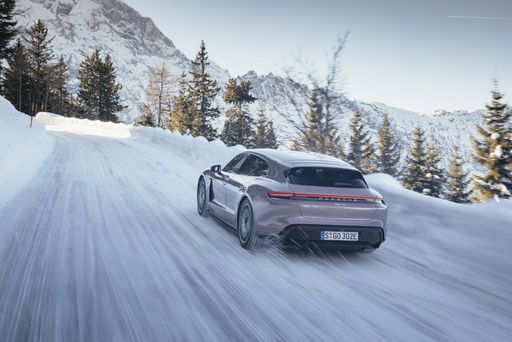 @ Dr. Ing. h.c. F. Porsche AG
@ Dr. Ing. h.c. F. Porsche AG
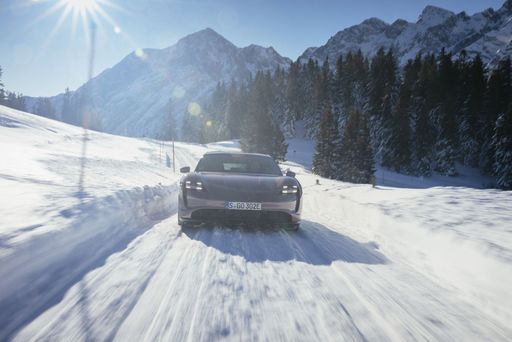 @ Dr. Ing. h.c. F. Porsche AG
@ Dr. Ing. h.c. F. Porsche AG
 @ Dr. Ing. h.c. F. Porsche AG
@ Dr. Ing. h.c. F. Porsche AG
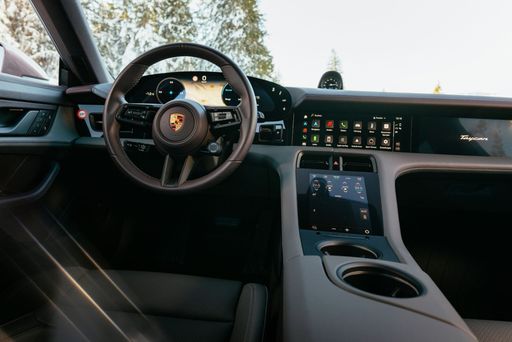 @ Dr. Ing. h.c. F. Porsche AG
@ Dr. Ing. h.c. F. Porsche AG
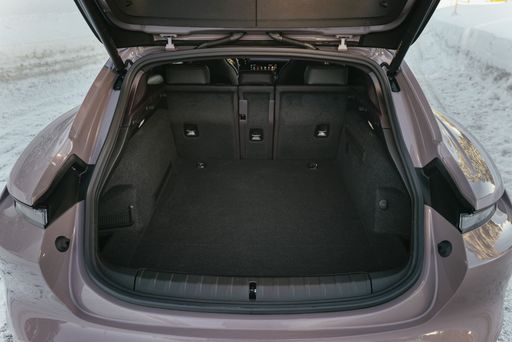 @ Dr. Ing. h.c. F. Porsche AG
@ Dr. Ing. h.c. F. Porsche AG
 @ Abarth / Stellantis Media
@ Abarth / Stellantis Media
|
 @ Dr. Ing. h.c. F. Porsche AG
@ Dr. Ing. h.c. F. Porsche AG
|
|
|
|
Costs and Consumption |
|
|---|---|
|
Price
32600 - 39400 £
|
Price
88700 - 182100 £
|
|
Consumption L/100km
-
|
Consumption L/100km
-
|
|
Consumption kWh/100km
17.1 - 18.8 kWh
|
Consumption kWh/100km
17.5 - 19 kWh
|
|
Electric Range
242 - 265 km
|
Electric Range
537 - 652 km
|
|
Battery Capacity
37.80 kWh
|
Battery Capacity
82.3 - 97 kWh
|
|
co2
0 g/km
|
co2
0 g/km
|
|
Fuel tank capacity
-
|
Fuel tank capacity
-
|
Dimensions and Body |
|
|---|---|
|
Body Type
Hatchback
|
Body Type
Estate
|
|
Seats
4
|
Seats
4
|
|
Doors
3
|
Doors
5
|
|
Curb weight
1410 - 1435 kg
|
Curb weight
2190 - 2400 kg
|
|
Trunk capacity
185 L
|
Trunk capacity
405 - 446 L
|
|
Length
3673 mm
|
Length
4962 - 4974 mm
|
|
Width
1682 mm
|
Width
1966 - 1967 mm
|
|
Height
1518 mm
|
Height
1388 - 1412 mm
|
|
Max trunk capacity
550 L
|
Max trunk capacity
1171 - 1212 L
|
|
Payload
370 - 385 kg
|
Payload
475 - 605 kg
|
Engine and Performance |
|
|---|---|
|
Engine Type
Electric
|
Engine Type
Electric
|
|
Transmission
Automatic
|
Transmission
Automatic
|
|
Transmission Detail
-
|
Transmission Detail
Reduction Gearbox
|
|
Drive Type
Front-Wheel Drive
|
Drive Type
All-Wheel Drive, Rear-Wheel Drive
|
|
Power HP
155 HP
|
Power HP
408 - 952 HP
|
|
Acceleration 0-100km/h
7 s
|
Acceleration 0-100km/h
2.4 - 4.8 s
|
|
Max Speed
155 km/h
|
Max Speed
220 - 260 km/h
|
|
Torque
235 Nm
|
Torque
410 - 1110 Nm
|
|
Number of Cylinders
-
|
Number of Cylinders
-
|
|
Power kW
114 kW
|
Power kW
300 - 700 kW
|
|
Engine capacity
-
|
Engine capacity
-
|
General |
|
|---|---|
|
Model Year
2023
|
Model Year
2024 - 2025
|
|
CO2 Efficiency Class
A
|
CO2 Efficiency Class
A
|
|
Brand
Abarth
|
Brand
Porsche
|
Is the Abarth 500 595 695 offered with different drivetrains?
The Abarth 500 595 695 is offered with Front-Wheel Drive.
The prices and data displayed are estimates based on German list prices and may vary by country. This information is not legally binding.
